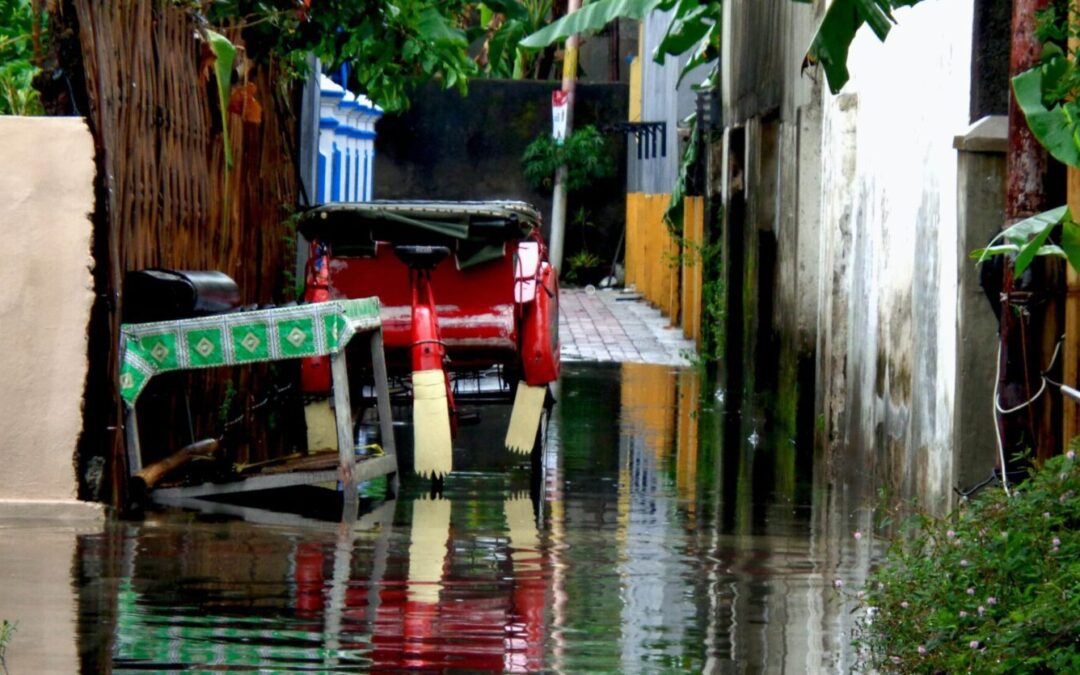The University of Wollongong (UOW) and Telkom University in Indonesia have recently embarked on a groundbreaking project that aims to revolutionise flood mitigation in Central Java.
Thanks to substantial funding provided by KONEKSI (Collaboration for Knowledge, Innovation, and Technology Australia and Indonesia), this international collaboration will incorporate cutting-edge technology, artificial intelligence (AI), machine learning, and the internet of things (IoT) to transform the monitoring of seawater levels in the region.
Central Java, Indonesia, is no stranger to the daily threat of tidal flooding, which poses significant risks to both residents and the environment. The cities of Pekalongan, Demak, and Semarang, situated in a low-lying coastal region, have faced numerous challenges, including tidal floods in May 2022 that reached heights of 1.1 to 2 meters, submerging 51% of Pekalongan and numerous neighborhoods in Semarang.
The impact of tidal flooding is multi-faceted, resulting in property damage, displacement, and, tragically, loss of life. It strains emergency services, damages roads, buildings, homes, and public facilities, and disrupts daily life. Health issues have also risen, with residents facing moisture and mold-related illnesses such as diarrhea, dengue fever, water fleas, and various skin and lung complaints. Moreover, the region’s economy and agriculture have suffered due to the loss of productive land.
To address these challenges, an international team of researchers led by University of Wollongong Associate Professor Le Chung Tran will develop the “Tide Eye” solution. This AI-driven system, incorporating drone technology and the IoT, will enable real-time monitoring of seawater levels and tidal flood risks.
“This project will develop a cutting edge, fit-for-purpose, scalable and affordable solution for tidal flood monitoring. It will help mitigate tidal flood losses, increase income, retain and enhance the livelihood of many local people. The project will also create a large shareable database for monitoring seawater and tidal floods. The program will include training for Pemali-Juana River Basin Office (BBWS) staff so that they can fully operate, maintain and replicate the system at other locations over the long term,” Professor Tran said.
“The applications of the project may extend far beyond the current scope – what we learn here through better tidal flood monitoring and flood prediction may result in better policies for mangrove planting and coastline management, housing, land use, transport and fisheries.
“In a world where climate change is increasing the number and severity of weather events, managing flood impact could be a challenge many countries must tackle. The outcomes of this project will be readily applicable to other end-users around the world. The solutions born out of this study will provide significant support for data driven decision making regarding climate change impact mitigations.”
The funding for this transformative project, provided by KONEKSI, is supported by the Department of Foreign Affairs and Trade (DFAT) Australia. The project leverages the expertise of UOW and Telkom University in partnership with PT. Hilmy Anugerah Consulting Engineer Ltd. PT. Hilmy Anugerah Ltd. will oversee various aspects of the project, from advising on suitable locations to designing and constructing IoT stations, thus ensuring the project’s success and its potential to make a significant impact on flood management strategies worldwide.

